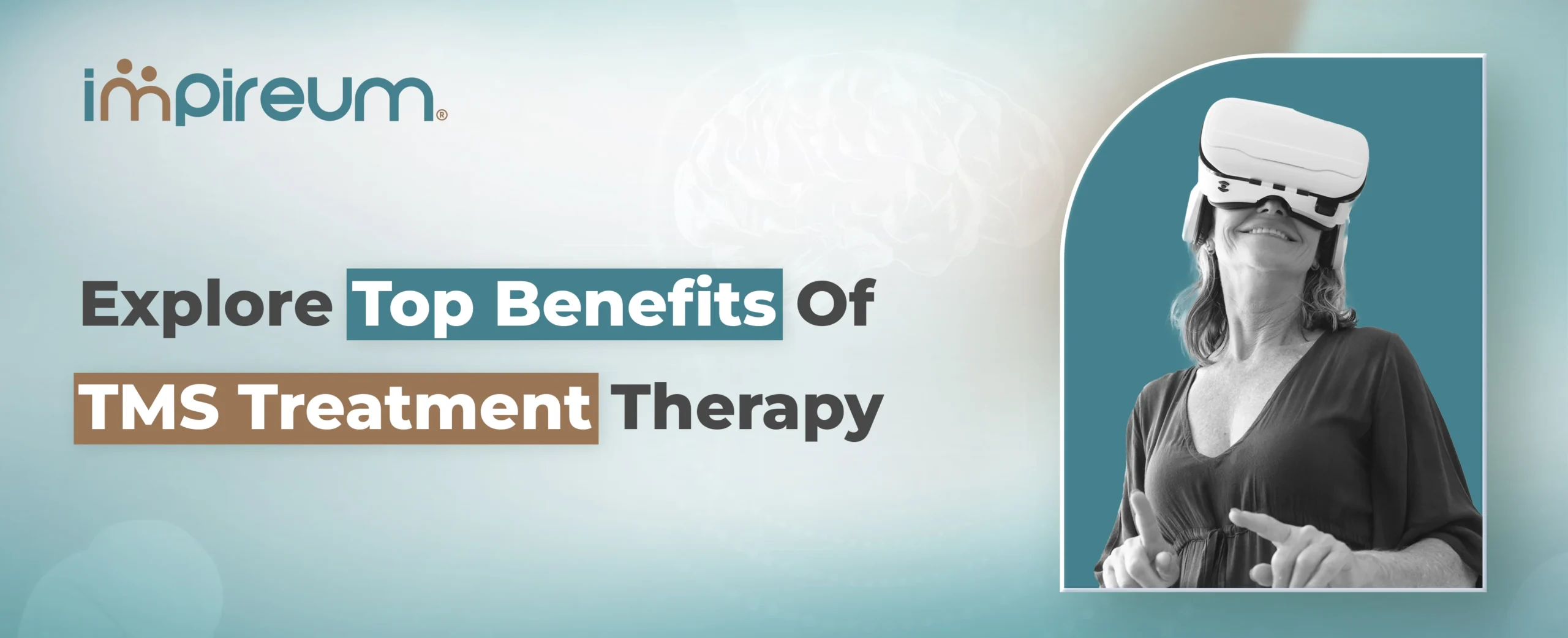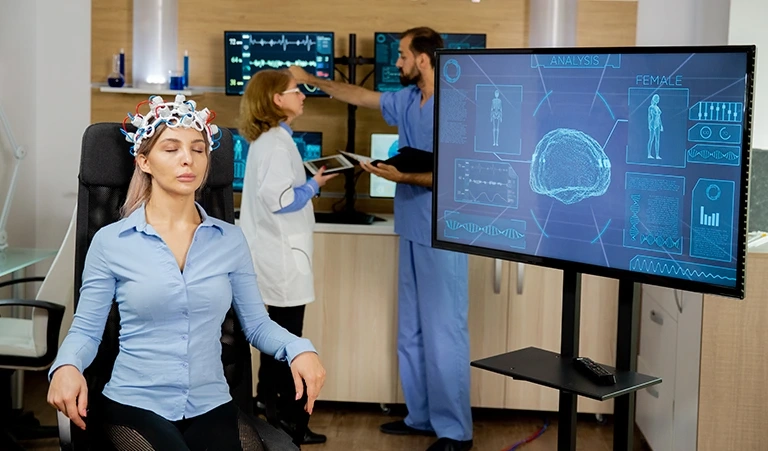Transcranial Magnetic Stimulation (TMS) is a groundbreaking therapy that offers new hope for those struggling with mental health issues. Using magnetic fields to stimulate nerve cells in the brain, TMS is mainly used as a therapy option for treating depression but also shows promise for other conditions.
TMS therapy involves a behavioral therapist placing a magnetic coil against the scalp near the forehead. This coil generates magnetic pulses that stimulate nerve cells in the brain regions involved in mood control and depression. Unlike medications, which affect the entire brain and body, TMS targets specific areas, making it a highly focused treatment.
For instance, atypical TMS session lasts about 30-40 minutes; patients usually undergo sessions five times a week for about 4-6 weeks.
In the United States, depression affects about 17 million adults each year. Despite this high number, only about 65% of these individuals seek any form of treatment. Mental health physicians will commonly prescribe traditional treatments, such as antidepressants, but they come with their own set of challenges.
For example, 13% of Americans take antidepressant medications1, while 12% use medications for anxiety and around 2.8% for bipolar disorder. These medications often have side effects that can be difficult to manage, leading many to seek alternative treatments.
This therapy is gaining popularity, especially among people2 who do not respond well to medications. As of recent statistics, approximately 60-80% of patients experience significant improvement in their symptoms, and about one-third achieve full remission3.
The growing interest in TMS is also reflected in the increasing number of clinics offering this treatment across the country.
Firstly, TMS can help stabilize mood by directly targeting brain regions responsible for mood regulation, offering relief from depressive symptoms.
Many psychiatric medications4 cause side effects like weight gain, fatigue, and sexual dysfunction. Fortunately, it offers a compelling alternative without these unwanted effects
As a noninvasive procedure, TMS doesn’t require surgery or medication, making it a safer option for many patients.
Unlike medications that can take weeks or months to show effects, many patients start noticing improvements within a few weeks of TMS therapy.
Most health insurance plans will cover TMS therapy treatments, making it an affordable option for many patients. Also, TMS proves to be cost-effective in the long run by potentially reducing the need for long-term medication.
TMS is proving to be a promising alternative to traditional treatments for depression and other mental conditions. With its high effectiveness rate, minimal side effects, and non-invasive nature, this therapy now paves the way for a better option in mental health care. If you’re struggling with depression and traditional treatments haven’t worked for you, it might be the solution for you.
At Impireum, we guarantee a 72-hour Referral Intake process and Telepsychiatry services for initial appointments. To get started, take the Depression Quiz or connect with us directly at 346-361-0100 for immediate assistance.



